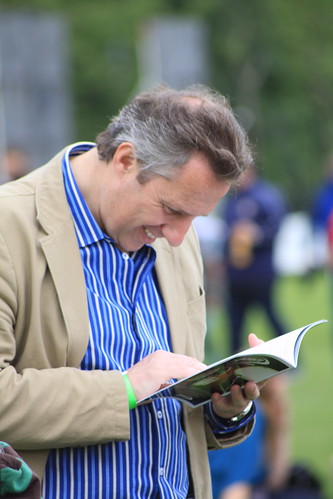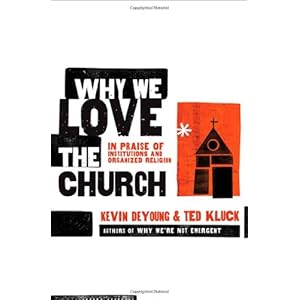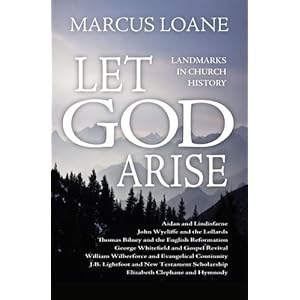We’re continuing our series in the psalms, and come to a psalm of desperation; as David faces a terrible situation of opposition. The Psalm breaks down into two main sections - God, protect me; and God, punish them. In each case, we find some verses dealing with the wicked, before the final verses concentrating on God’s salvation.
The opening section (1-5) presents the agonising situation that David finds himself in. We’re not told the specifics - whether this is when Saul is hunting him down, or whether the evil men in view are the nations surrounding Israel when he is king. Either way, the situation seems to be bleak.
1-3 and 4-5 could sit parallel - do you see the similarities? Deliver me/Guard me from evil men/the hands of the wicked. Then the second line is exactly the same: preserve me from violent men. The first situation concerns these violent men who plot evil in their hearts and then speak it out - having a sharp tongue, having poison like an asp in their mouth, ready to strike out.
As if that wasn’t enough, the violent men are also planning to trip up his feet. They’re planning to trap him, to capture him, to do away with him. There’s a clear and present danger - both from these poisonous lips and from the hidden traps. David, representing the people of God, is in danger.
The first section concludes, then with verses 6-8. Notice that rather than focusing primarily on the threat, David turns to his God, more than that, to the covenant LORD. ‘I say to the LORD, you are my God; give ear to the voice of my pleas for mercy, O LORD!’ David takes shelter in the covenant LORD, the one who has promised to be his God, the one who is with him. But even at that, David can only plea for mercy, rather than demand things as a right.
Yet there is confidence as David approaches his God - look at verse 7. ‘O LORD, my Lord, the strength of my salvation, you have covered my head in the day of battle.’ He’s acknowledging that he cannot save himself, but that God saves, indeed is the strength of his salvation. It’s not that we’re just about saved, that we just about make it, but that God who is almighty, strong, provides a great salvation, a strong salvation, an imperishable, undefiled and unfading salvation. Indeed, just as God has covered David’s head in battle - he has protected David in the past in tricky situations - so David continues to trust in him, knowing God’s strong salvation.
Verse 8, the final in the first section (God, protect me), is an earnest prayer against the yearning of the wicked; another plea for God to save him, and to frustrate the plans of the wicked: ‘Grant not, O LORD, the desires of the wicked; do not further their evil plot or they will be exalted.’ David is concerned, not just for his own security, but also for God’s good name - for the wicked to succeed, to gain their desires, will mean that they are exalted in the eyes of the world. The glory of man takes away from the glory that is due to God alone, so this is a prayer for God to act for his own glory.
In the second half of the Psalm (9-13), David’s prayer is not now for protection, but for punishment. God, punish them, is the summary line of the second section. As before, we have the prayer against the wicked men, before the final verses which express the certainty.
Let’s look at verses 9-11. Earlier in verse 7, David has recalled how the LORD has covered his head in the day of battle. Now, he prays that the wicked would have uncovered heads - ‘As for the head of those who surround me, let the mischief of their lips overwhelm them!’ David is praying that what they inflict on others would come back to them. I was thinking about how to illustrate it, (and for the second week in a row, I’m using a cartoon - not sure what that says about me!). Have you ever seen Wile-E-Coyote? He’s the guy that always tries to capture Roadrunner. He might have a boulder ready to drop on roadrunner, but it doesn’t budge - until he’s standing under it. Or he paints a tunnel on the rockface - roadrunner gets through it, but then he hits the rock. You’d think he’s learn - all his evil schemes come back to haunt him; his evil is returned to himself.
It seems that David is asking for this sin to be returned to them - the slanderer not being established (and burning coals falling on him); the violent man who had hunted with violence being hunted by evil and falling into the miry pits (this, the same person who was laying traps).
But let’s be clear here - David is not asking for a sort of karma. Karma is the eastern notion that if you do something bad, then something bad will happen to you. That’s not what is going on here. Remember, David is praying to the covenant LORD, who is the judge of all the earth. It’s not that sin is punished through an impersonal force that seeks balance in your personal circumstances. No, God is the one who sees and judges. God is the one who punishes, according to his holiness and justice.
We see this in the closing verses - David doesn’t say ‘I know that karma will sort everything out’ but ‘I know that the LORD will maintain the cause of the afflicted, and will execute justice for the needy.’ David knows this, we know this, and yet sometimes we have to admit that it’s slow to happen, or at least it seems that way. But we have to remember that it will happen in God’s timing, not ours. That one day time will cease, and the full final judgement (with no appeals) will take place, and the afflicted and needy will find justice. At that time, then we will see the fullness of verse 13 - the righteous giving thanks to God (his name), and the upright dwelling in his presence.
So how do we apply this psalm? How do we take it and use it? I think we’re often inclined to find ourselves in the role of David, as the one who is afflicted and threatened and slandered. We see ourselves as the victims of the violence of others. Yet at the same time, we’re more likely to be in the role of the evil men, the violent men, planning evil in the heart and stirring up wars.
You see, verse 3 is used by Paul in his letter to the Romans, in chapter 3 (p1133), in that long litany of verses from the Old Testament which shows that ‘none is righteous’, that all of us are sinful, that all of us are guilty. As such, we also need to recognise the ways in which we have venomous lips, seek to trap others, slander them and oppose them.
As we’ve seen, God will punish these sins, so before we cry for mercy from the attacks of others, we first need to cry for mercy for ourselves - finding that strong salvation that comes from the LORD. In that sense, we need to use verse 6 of ourselves first - ‘You are my God; give ear to my pleas for mercy, O LORD!’
Then having received that mercy, being numbered with the people of God; being sinned against by others, how will we respond? Our tendency can be to quickly lash out at those who are hurting us - perhaps not in personal violence or retaliation, but to use these imprecatory psalms against them. We might take great delight in the prospect of those who hurt us roasting in hell for all of eternity, but is that really how we should react? Our God is the one who does not take pleasure in the death of the wicked, but would rather he turn from his sins and live (Ezek 19:23).
Those of us who have known the mercy of the LORD, that undeserved favour and deliverance from the punishment that we deserve - can we really push for others to receive the same? Will we not rather seek for others to know this forgiveness too?
Remember that our sins have not just been forgotten - they have been punished, in the body and death of the Lord Jesus on the cross - this must change our attitude, how we see others. It’s not that our sins were trivial matters compared to the sins against us, but that our punishment has been borne. Jesus’ death ushers in the kingdom ethic, how we respond to the sins of others. We don’t retaliate, we leave room for God to judge in his time and his way.
It’s not that we won’t be sinned against, or ever be opposed/slandered/hurt as a Christian; we still find opposition and threats. Rather, as Paul again writes to the Romans (p 1142): ‘If possible, so far as it depends on you, live peaceably with all. [But some people will still oppose/slander/attack you. So:] Beloved, never avenge yourselves, but leave it to the wrath of God, for it is written, “Vengeance is mine, I will repay, says the Lord.” To the contrary, “if your enemy is hungry, feed him; if he is thirsty, give him something to drink; for by so doing you will heap burning coals on his head.” Do not be overcome by evil, but overcome evil with good.’ (Romans 12:18-21)
It’s not easy to respond by blessing when being cursed by our enemies. It’s not easy to entrust yourself to God’s justice and God’s timing when you have opportunity to strike back yourself. Sometimes you’re in the heat of the moment and want some instant satisfaction.
David urges us to take the longterm view, trusting God for salvation and vindication, knowing that those who refuse to repent will find their sins returned to them. Those last two verses point us to the end of time, when all wrongs will be righted and justice will be done, and seen to be done. Sin, sorrow, suffering, will be removed from God’s presence; ‘Surely the righteous shall give thanks to your name; the upright shall dwell in your presence.’ Even so, come, Lord Jesus. Amen.
This sermon was preached in St Elizabeth's Church, Dundonald on Sunday 8th August 2010.





